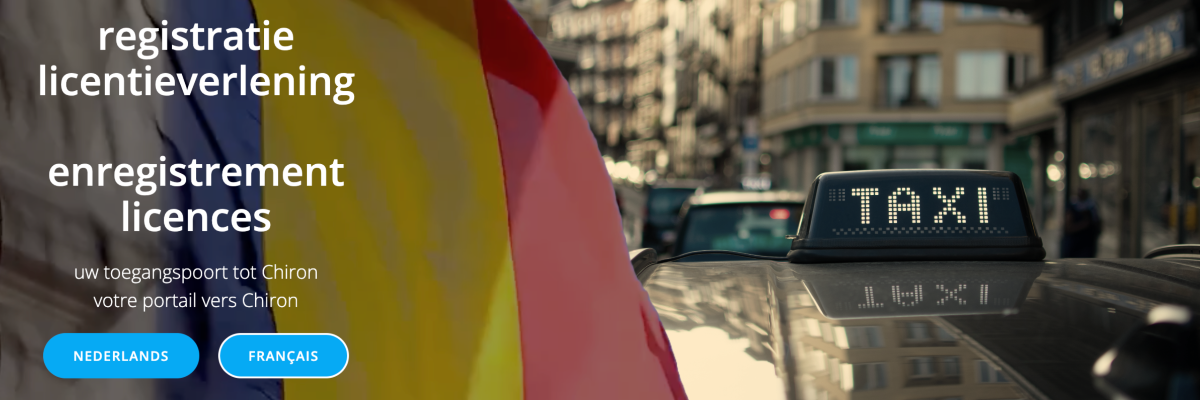"When I take a taxi, I don't feel the need to have a deep conversation with the taxi driver as such."
Minister Lydia Peeters joked with this statement during the last committee meeting. “Now, others may have that. Just to indicate that it is not really an issue of my faith,” said Minister Peeters. As far as she is concerned, the willingness to continue working on a solution is more than ever. “Let us work together and get our heads in the same direction. Let us come to a solution here. At the time, we had anticipated a period of two years. Apparently that does not provide relief for everyone. But, as I just said, we will continue to work on it. I don't think the last word has been said yet. Hopefully we will reach an arrangement soon.”
challenges
The Flemish taxi sector faces significant challenges when it comes to regulatory compliance and the integration of technology and language skills. A recent study even showed that a significant number of taxis in Flanders still do not comply with the current Chiron regulations. This is particularly worrying in urban areas, where even 65% of taxi drivers who are connected to the system do not use it to register their journey orders in the government-mandated Chiron journey database system.
A striking aspect of this problem is that many taxi drivers, once in possession of the necessary permits from their municipality, appear to ignore the use of the Chiron system. This behavior may indicate several underlying factors, such as insufficient knowledge about the system, a lack of technical skills, or possibly a general resistance to the introduction of new technologies and procedures. But the issue is not just limited to technology compliance.
The Flemish government has introduced strict rules to guarantee the quality of the taxi service, including the obligation for taxi drivers to take a language test by June 2024. This rule, which has caused controversy especially in Brussels, requires drivers to obtain a B1 level in Dutch. Failure to pass this test may result in the loss of their driver's license. This is a worrying development, as many drivers in Brussels do not speak Dutch and must take both an oral and a written test.
Flemish Minister of Mobility Lydia Peeters emphasizes the importance of this language test for the quality and safety of services. She points out the specific needs of taxi drivers and the cooperation with taxi companies in drawing up the written part of the test. The minister also refers to a course that meets the needs of drivers. This course is promoted by the Department of Mobility and Public Works (MOW) and can also be followed via the regular route organized by the Agency for Integration and Civic Integration.
"But in any case, we are on speaking terms with the sector and we are also looking at whether the sector itself is willing to provide some concessions in order to arrive at an orderly arrangement. Should additional postponement be granted? We certainly do not want this to happen. robbed bread. We don't want those taxi drivers to all lose their driver's license."
Lydia Peeters

"About 70% of the Flemish taxi companies that we have affiliated with Chiron drive the Toyota C-HR," says Sam Saey, account manager at the Eindhoven software company Censys BV.
To continue driving the beautiful car as a taxi driver, the EU definitions for language levels indicate that level B1 is necessary for basic communication. For reading this means understanding short, simple texts and messages, while for speaking the definition focuses on having simple conversations about familiar topics and activities. These skills are essential for the interaction between taxi drivers and their customers, as well as for the safety and efficiency of the service.
student transport
It is striking that student transport does not fall under the same rules as individual paid passenger transport. A driver's pass is not required for this sector, but De Lijn ensures that its staff can communicate effectively with the bus conductor and the young people who use transport.
The Flemish Government strives to treat the taxi as a fully-fledged means of transport, with comfort and safety paramount. This is reflected in recent regulations and efforts to improve the taxi sector. However, the challenges of technology compliance and language skills remain areas that need to be addressed to ensure a high-quality taxi service in Flanders
“We are of course not deaf to the comments that the sector gives us. We also know that they have taken action. We are currently looking at how we can respond to their requests. I don't have a ready answer to that yet. You know that the postponement applies until June 2024, so we are looking at how we can respond to this further,” says Lydia Peeters.




